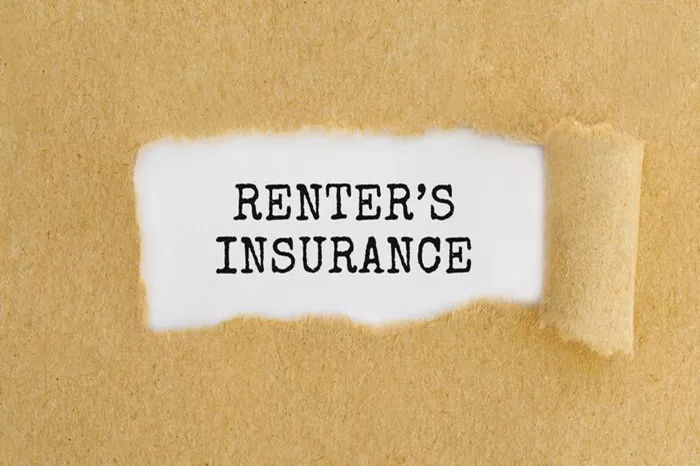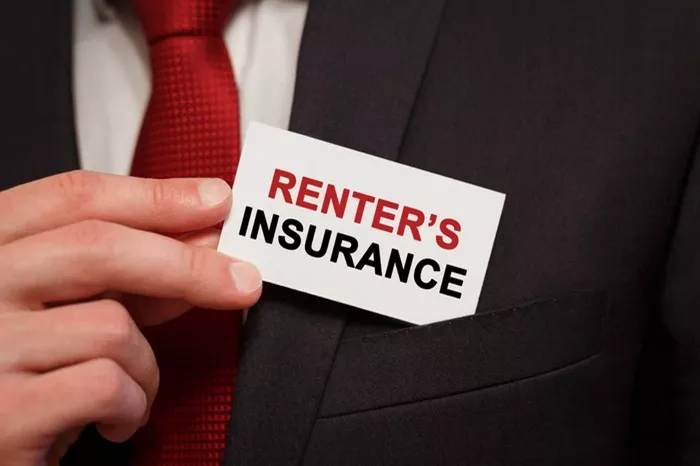Renters insurance provides crucial financial protection for tenants living in rented properties. Understanding what you can claim under renters insurance is essential for ensuring you have adequate coverage in case of unforeseen events.
Personal Property Coverage
Definition and Coverage Limits
Renters insurance typically covers personal belongings such as furniture, clothing, electronics, and jewelry. It protects these items from perils like fire, theft, vandalism, and certain natural disasters.
Covered Items
Your policy may cover a wide range of personal items, including:
Furniture: Couches, beds, dining sets
Clothing: Wardrobe contents, shoes, accessories
Electronics: TVs, computers, gaming consoles
Jewelry: Rings, necklaces, watches
Each category may have specific limits based on the value and type of item. Review your policy details carefully to understand these limits.
Special Considerations
Some high-value items like art collections, antiques, or expensive jewelry may have coverage limits that are lower than their actual value. Consider adding endorsements or scheduled personal property coverage for such items to ensure full protection.
Replacement Cost vs. Actual Cash Value
When filing a claim for damaged or stolen items, renters insurance policies typically offer two types of coverage:
Replacement Cost Coverage: This reimburses you for the full cost of replacing an item at today’s market prices, regardless of its age or condition.
Actual Cash Value (ACV) Coverage: This reimburses you for the depreciated value of an item, taking into account its age and condition at the time of loss.
Understanding which type of coverage your policy provides can significantly impact the reimbursement you receive.
Liability Coverage
Overview
Liability coverage protects you financially if you’re responsible for injury to others or damage to their property within your rented home.
Examples of Coverage
Renters insurance liability coverage may include:
Accidental Damage: Coverage for accidental damage you cause to the rental property itself, such as breaking a window or damaging flooring.
Personal Injury: Coverage for medical expenses if someone is injured in your rental unit due to your negligence, such as slipping on a wet floor.
Legal Expenses
Liability coverage may also include legal expenses if you are sued for damages covered by your policy. This can include attorney fees, court costs, and settlements or judgments up to your policy limits.
Exclusions
It’s important to note that liability coverage typically does not extend to intentional acts of harm, criminal activities, or business-related incidents. Review your policy exclusions carefully to understand what scenarios may not be covered.
Additional Living Expenses (ALE)
Purpose and Coverage
Additional Living Expenses (ALE) coverage helps with costs incurred if you’re temporarily displaced from your rental due to covered damages.
Qualifying Situations
You may claim ALE benefits in situations such as:
Damage to Rental Property: If your rental unit becomes uninhabitable due to a covered peril like fire or severe water damage.
Repairs or Reconstruction: While repairs are being made to your rental unit, forcing you to live elsewhere temporarily.
Policy Coverage Limits: Your policy will outline specific limits and durations for ALE coverage, so be sure to review these details carefully.
Claimable Expenses
ALE coverage typically includes:
Temporary Housing Costs: Such as hotel or rental apartment expenses.
Food Expenses: Additional costs for meals above your normal budget, due to displacement.
Transportation Costs: If your temporary accommodation is further from your workplace or regular activities, and you incur additional commuting expenses.
Documenting Expenses
Keep all receipts and documentation related to your ALE expenses. This documentation is crucial when filing a claim to ensure you receive reimbursement promptly and accurately.
See Also: What Is the Average Renters Insurance
Additional Coverage Options
In addition to standard renters insurance coverage, consider these additional options for enhanced protection:
Scheduled Personal Property Coverage: Provides higher limits and broader coverage for specific high-value items like jewelry, art, or collectibles.
Flood Insurance: Protects against damage caused by flooding, which is typically excluded from standard renters insurance policies.
Earthquake Insurance: Covers damage to your personal belongings and rental property caused by earthquakes, which may also be excluded from standard policies depending on your location.
Identity Theft Coverage: Helps cover expenses related to identity theft, such as legal fees, credit monitoring, and identity restoration services.
Pet Liability Insurance: Covers liability for pet-related incidents, such as bites or property damage caused by your pets.
Loss Assessment Coverage: Protects against unexpected costs if you’re assessed a portion of damages to common areas of your rental property or condominium.
Evaluate these options based on your location, lifestyle, and specific coverage needs to ensure comprehensive protection against a wide range of risks.
Policy Exclusions and Limitations
Despite the comprehensive coverage offered by renters insurance, there are certain exclusions and limitations you should be aware of:
Common Exclusions
Natural Disasters: Standard policies may exclude coverage for damage caused by earthquakes, floods, hurricanes, and other natural disasters. Consider additional coverage options if you live in an area prone to such events.
Intentional Acts: Damage or liability resulting from intentional acts, criminal activities, or violations of the law are typically not covered.
Business Activities: If you operate a business from your rental property, any associated liabilities or losses may not be covered under your renters insurance policy.
High-Value Items: Certain high-value items such as jewelry, art collections, or antiques may have limited coverage under standard policies. Consider adding endorsements or separate policies to adequately insure these items.
Limitations
Coverage Limits: Each category of coverage (personal property, liability, ALE) has specific limits outlined in your policy. Review these limits to ensure they meet your needs and consider adjusting coverage amounts if necessary.
Deductibles: Your policy may include deductibles, which are the amount you must pay out of pocket before your insurance coverage kicks in. Understand your deductible amounts for different types of claims.
Exclusions by Endorsement: Some exclusions can be modified or extended through policy endorsements. Review any endorsements attached to your policy to understand additional exclusions or limitations that may apply.
Filing a Claim
Filing a renters insurance claim involves several key steps to ensure a smooth process:
Contact Your Insurer: Notify your insurance company as soon as possible after the incident occurs. Most policies have a time limit for filing claims, so prompt notification is essential.
Provide Details: Be prepared to provide detailed information about the incident, including the date, time, and cause of loss or damage.
Document Losses: Take inventory of damaged or stolen items. Photos or videos can be helpful evidence. Keep damaged items until your claim is settled, unless they pose a health or safety risk.
Fill Out Claim Forms: Your insurer will provide claim forms that need to be completed accurately. Include all relevant information and documentation to support your claim.
Cooperate with Adjusters: Your insurer may send an adjuster to assess the damage and validate your claim. Cooperate fully and provide access to the damaged property as requested.
Review Settlement Offer: Once your claim is processed, review the settlement offer carefully. Ensure it aligns with your policy coverage and expectations.
Appeal Process: If you disagree with the settlement offer, understand the appeal process outlined in your policy. You may have options to request a review or mediation.
Finalize Documentation: Keep copies of all correspondence, receipts, and documentation related to your claim. This paperwork can be useful for future reference or appeals.
Filing a claim promptly and providing thorough documentation will help expedite the process and maximize your chances of receiving fair compensation for covered losses.
Conclusion
Renters insurance offers vital protection against unexpected losses, covering personal property, liability, and additional living expenses. Understanding your policy’s coverage specifics and exclusions is crucial for maximizing benefits during a claim.
FAQs
1. Is renters insurance mandatory?
Renters insurance is typically not legally required by state or federal law. However, landlords may require tenants to purchase a policy as part of the lease agreement. Even if not required, renters insurance is highly recommended to protect your personal belongings and liability risks.
2. How much renters insurance coverage do I need?
The amount of renters insurance coverage you need depends on factors such as the value of your personal belongings and your liability risks. Conducting a home inventory can help you estimate the value of your possessions. Consider opting for replacement cost coverage for your belongings to ensure you can replace items at today’s prices.
3. What isn’t covered by renters insurance?
While renters insurance provides broad coverage, there are certain exclusions and limitations. Common exclusions may include:
Damage caused by floods, earthquakes, and other natural disasters (often requiring separate policies).
Intentional acts of harm or criminal activities.
Business-related liabilities or losses.
Review your policy carefully to understand specific exclusions and consider additional coverage options if needed.






















